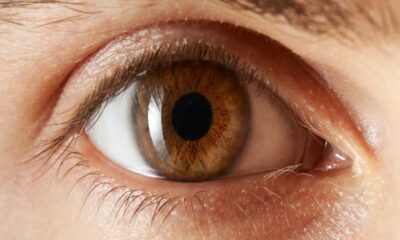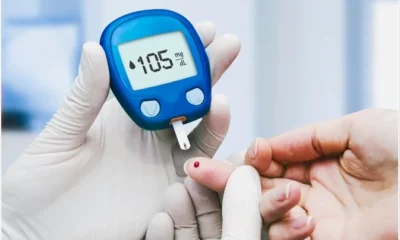A study presented at the American College of Cardiology’s Annual Scientific Session suggests that sleeping for less than seven hours is linked to an increased risk of high blood pressure over time, as reported by Science Daily.
Although a correlation between irregular sleep habits and elevated blood pressure has been shown, researchers have found conflicting data regarding the specifics of this link. The current research aggregates data from 16 studies carried out between January 2000 and May 2023, assessing the incidence of hypertension over a median follow-up of five years (follow-up ranging from 2.4 to 18 years) in 1,044,035 individuals from six countries who had no prior history of high blood pressure. After controlling for demographic and cardiovascular risk factors, such as age, sex, education, BMI, blood pressure, smoking status, etc., short sleep duration was substantially linked to an increased risk of developing hypertension. Additionally, it was discovered that the correlation was significantly more pronounced for people who slept for fewer than five hours.
“Based on the most updated data, the less you sleep — that is less than seven hours a day — the more likely you will develop high blood pressure in the future,” said Kaveh Hosseini, MD, assistant professor of cardiology at the Tehran Heart Center in Iran and principal investigator of the study. “We saw a trend between longer sleep durations and a greater occurrence of high blood pressure, but it was not statistically significant. Getting seven to eight hours of sleep, as is recommended by sleep experts, may be the best for your heart too.”
According to the study, if you sleep for less than seven hours, you have a 7% higher chance of getting high blood pressure. If you report sleeping for less than five hours, your risk increases to 11%. In contrast, Hosseini stated that smoking and diabetes are known to increase a person’s risk of hypertension by at least 20%.
Hosseini said that disturbed sleep could be the cause, even though the study did not examine why this might be the case. He mentioned comorbid problems or lifestyle choices including binge drinking, working nights, taking certain medications, eating too much, anxiety, depression, sleep apnea, or other sleep disorders as examples of potential contributing factors.
Given that sleep habits tend to change with age, researchers were surprised that there were no age-based changes in the link between sleep duration and hypertension. The participants’ ages ranged from 35.4 to 60.9 years, with 61% of them being female. Females who reported getting less than seven hours of sleep had a 7% higher chance of elevated blood pressure compared to men.
“Getting too little sleep appears to be riskier in females,” Hosseini said. “The difference is statistically significant, though we are not sure it’s clinically significant and should be further studied. What we do see is that lack of good sleep patterns may increase the risk of high blood pressure, which we know can set the stage for heart disease and stroke.”
It is imperative that individuals discuss their sleep patterns with their healthcare provider, particularly if they are experiencing sleep disturbances that may be related to obstructive sleep apnea. Increased risk of high blood pressure, stroke, and coronary artery disease has been linked to sleep apnea.
This study has a number of limitations, one of which is that changes in sleep duration during the follow-up period were not evaluated because sleep duration was relied on self-reported questionnaires. Furthermore, the definition of short sleep duration (less than five or six hours) varied between the research.
“Further research is required to evaluate the association between sleep duration and high blood pressure using more accurate methods like polysomnography, a method for evaluating sleep quality more precisely,” Hosseini said. “Moreover, the variations in reference sleep duration underline the need for standardized definition in sleep research to enhance the comparability and generalizability of findings across diverse studies.”

 Diabetology2 weeks ago
Diabetology2 weeks ago
 Diabetology1 week ago
Diabetology1 week ago
 Diabetology2 weeks ago
Diabetology2 weeks ago
 Diabetology1 week ago
Diabetology1 week ago
 Diabetology21 hours ago
Diabetology21 hours ago
 Diabetology4 hours ago
Diabetology4 hours ago
 Diabetology3 hours ago
Diabetology3 hours ago















